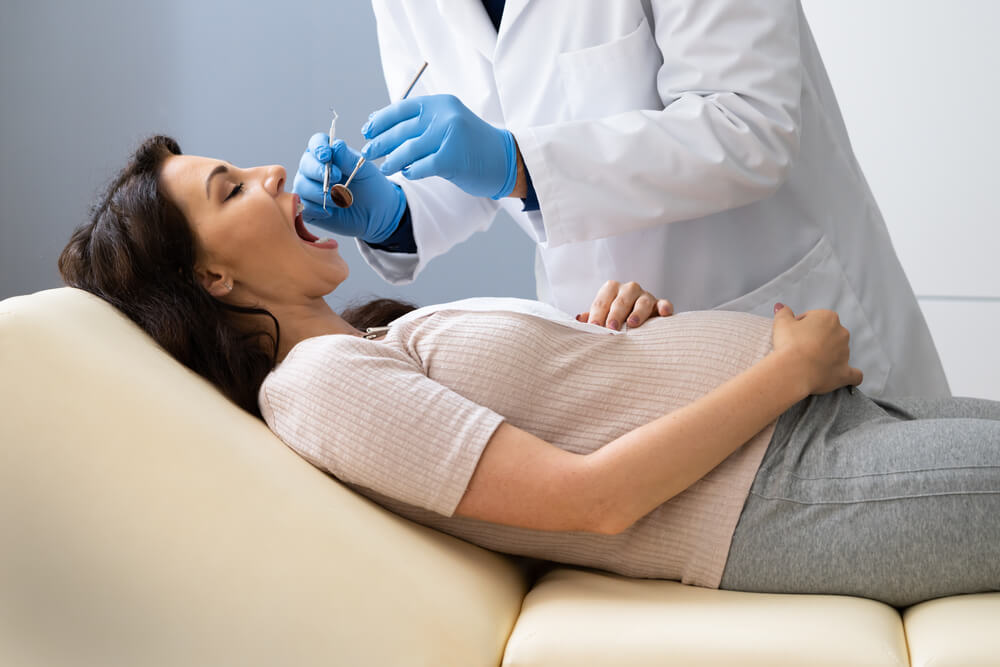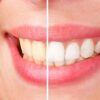The Importance of Dental Health During Pregnancy
Pregnancy is an exciting journey, but it’s also a time when you need to pay extra attention to your health – and that includes your dental health. At Perfect Smile Spa, we know how crucial it is to maintain those pearly whites, especially when you’re expecting. Let’s dive into why dental health during pregnancy is so important and how you can keep your smile bright and healthy.
Why Dental Health Matters
General Health Implications
Your overall health is intrinsically linked to your dental health. Neglecting your teeth and gums can lead to infections and other serious health issues that can affect both you and your baby. It’s not just about avoiding cavities; it’s about ensuring your body is in the best shape possible to support your growing baby.
Impact on Baby’s Health
Poor dental health in mothers has been linked to preterm births and low birth weight. Bacteria from gum disease can enter the bloodstream and reach the uterus, potentially triggering early labour. Your baby’s health can be significantly impacted by how well you take care of your teeth and gums.
Common Dental Issues in Pregnancy
Gum Disease
Pregnancy hormones can make your gums more susceptible to plaque, leading to inflammation and bleeding, commonly known as pregnancy gingivitis. Left untreated, this can escalate to periodontitis, a more severe form of gum disease.
Tooth Decay
Increased acidity in the mouth, changes in diet, and morning sickness can all contribute to higher risk of cavities. Keeping up with good oral hygiene is more important than ever.
Pregnancy Tumours
Don’t let the name scare you – these non-cancerous growths on the gums can occur due to hormonal changes. They usually disappear after giving birth, but they can be uncomfortable and sometimes require treatment.
Hormonal Changes and Dental Health
Increased Blood Flow
Pregnancy increases blood flow, which can make your gums more sensitive and prone to swelling and bleeding. It’s a bit of a double-edged sword – great for nurturing your baby but not so much for your gums.
Changes in Saliva Production
Hormonal shifts can affect saliva production, reducing its effectiveness in washing away food particles and neutralising acids. This makes your teeth more vulnerable to decay.
Safe Dental Treatments During Pregnancy
Routine Check-ups
Regular dental visits are crucial. They help in catching potential problems early and keeping your mouth healthy. Make sure your dentist knows you’re pregnant so they can tailor treatments appropriately.
Emergency Treatments
If you have a dental emergency, don’t wait. Pain and infections can be harmful to both you and your baby. Most treatments, including X-rays with proper shielding, are safe during pregnancy.
Cosmetic Procedures
While elective cosmetic procedures like teeth whitening are best postponed until after birth, some treatments are safe. Consult with your dentist to determine the best course of action.
Oral Hygiene Tips for Pregnant Women
Brushing Techniques
Use a soft-bristled toothbrush and brush at least twice a day. Be gentle to avoid irritating your sensitive gums. An electric toothbrush might help maintain thorough cleaning.
Flossing and Mouthwash
Floss daily to remove plaque between teeth where your brush can’t reach. Use an alcohol-free mouthwash to reduce plaque and maintain fresh breath.
Diet and Nutrition
Eating a balanced diet is crucial. Avoid sugary snacks and drinks, and include plenty of calcium-rich foods to support your baby’s developing teeth and bones.
Myths and Misconceptions
Dental Treatments are Unsafe
Many believe dental treatments during pregnancy are risky. In reality, with proper precautions, most treatments are safe. Always inform your dentist about your pregnancy to ensure the safest care.
Losing a Tooth Per Child
The old wives’ tale that you lose a tooth for each child is nonsense. With good dental care, there’s no reason you should lose any teeth during pregnancy. This myth only underscores the importance of diligent oral hygiene.
When to See Your Dentist
Early Pregnancy
Schedule a dental check-up as soon as you find out you’re pregnant. Early intervention can prevent complications down the road.
Mid-Pregnancy
The second trimester is usually the safest period for dental treatments. Morning sickness has typically subsided, and you’re not yet dealing with the discomfort of late pregnancy.
Late Pregnancy
As you approach your due date, dental visits can be uncomfortable but remain important. If you have any persistent issues, don’t hesitate to see your dentist.
Conclusion
Maintaining dental health during pregnancy is not just about a pretty smile – it’s about ensuring the health and well-being of both you and your baby. At Perfect Smile Spa, we’re here to help you navigate this journey with expert advice and top-notch care. Don’t let your dental health fall by the wayside; your smile and your baby’s health are worth it.



